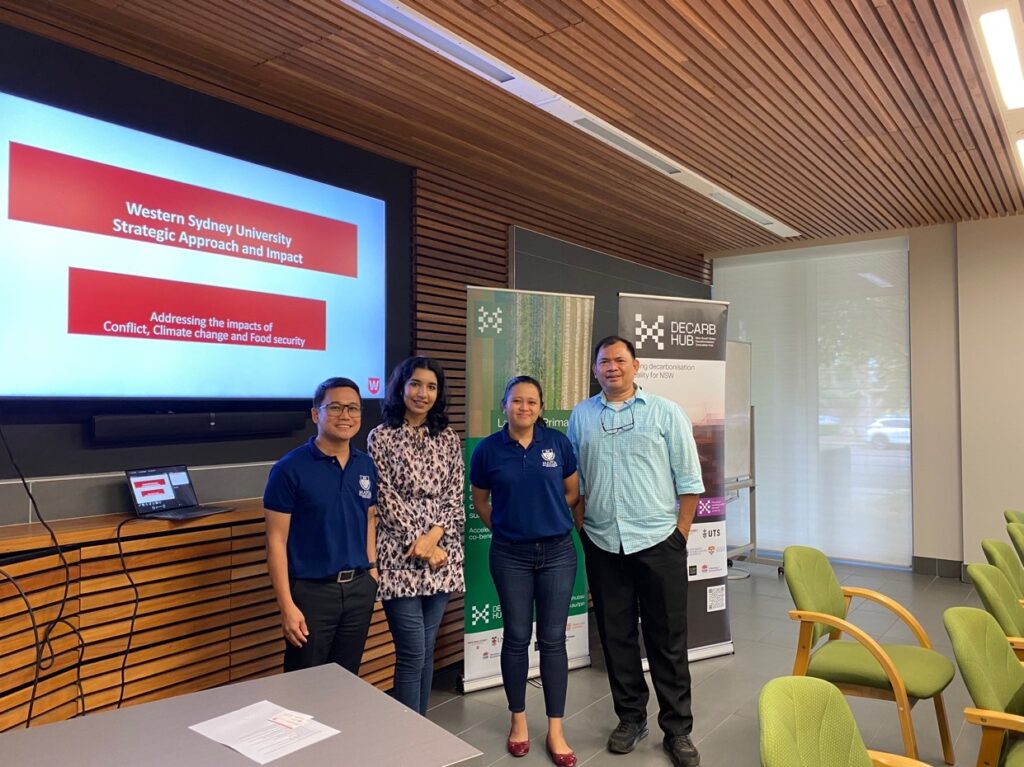In line with its ongoing commitment to internationalization and sustainability, Mapúa Malayan Colleges Mindanao (Mapúa MCM) participated in a high-impact benchmarking visit at Western Sydney University (WSU) in New South Wales, Australia, from April 7 to 10, 2025. A key highlight of the visit was the presentation of the signed Memorandum of Understanding (MOU) from WSU to the Mapúa delegation—solidifying the academic partnership and shared commitment to global sustainability goals.
Representing Mapúa MCM were Ms. Marycon Delos Reyes, Concurrent Director of the Institute for Global Sustainability (IGS), and Mr. Leopoldo D. Aquino, Jr., Director of the Office for Corporate Partnerships (OCP). They were joined by colleagues from other Mapúa schools: Atty. Denise Jordan Arenillo of Mapúa University and Engr. Rolando Bitor of Mapúa Malayan Colleges Laguna (Mapúa MCL).
Western Sydney University has been consistently ranked #1 in the Times Higher Education (THE) Impact Rankings since 2022, making it a model institution for sustainable practices in education, research, and community engagement. The visit aimed to learn from WSU’s institutional strategies and determine how these can be adapted to strengthen the sustainability frameworks within the Mapúa schools, particularly at Mapúa MCM.
Day 1: Sustainability in Practice at Hawkesbury Campus
The benchmarking activities commenced at Western Sydney University’s Hawkesbury campus, where the delegation engaged with the Office for Sustainability Education and Partnerships. The session was led by Ms. Jen Dollin (Director), Ms. Brittany Vermeulen (Program Manager), and Dr. Garth Lean (Associate Dean for Engagement and International, School of Social Sciences). Their presentations offered a comprehensive overview of WSU’s sustainability framework, emphasizing the integration of ecological literacy, community engagement, and curriculum innovation across disciplines.
These presentations not only highlighted WSU’s commitment to embedding sustainability into all facets of university life but also showcased successful case studies and cross-sectoral collaborations. The exchange of ideas during the sessions generated rich discussions and sparked strategic insights that will significantly contribute to the advancement of Mapúa MCM’s own sustainability initiatives.
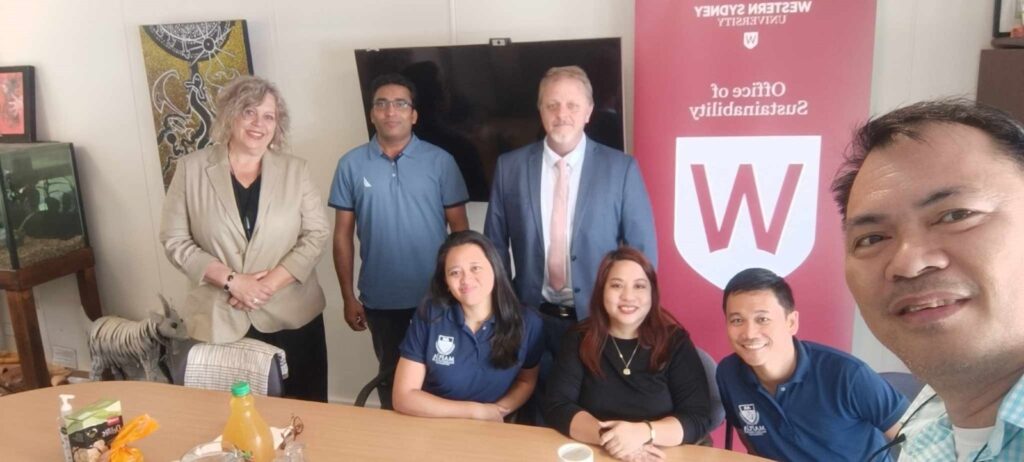
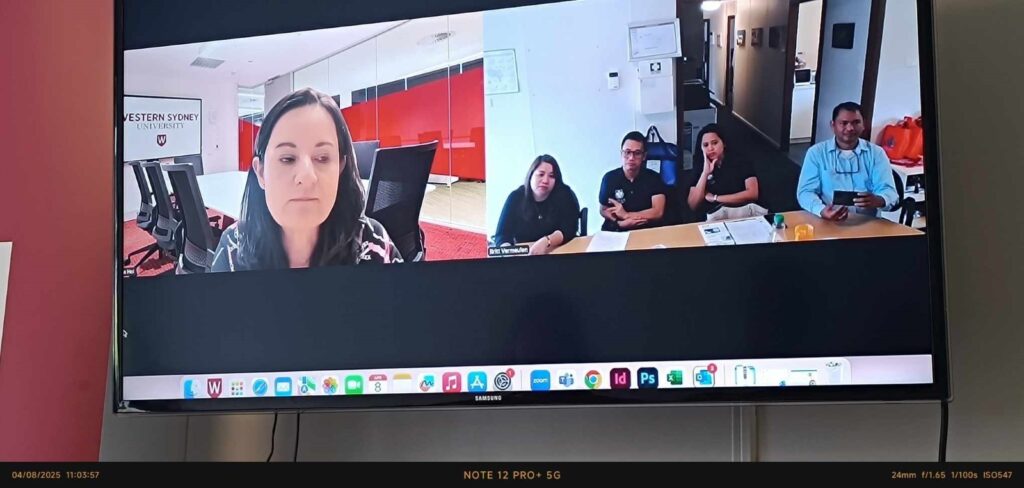
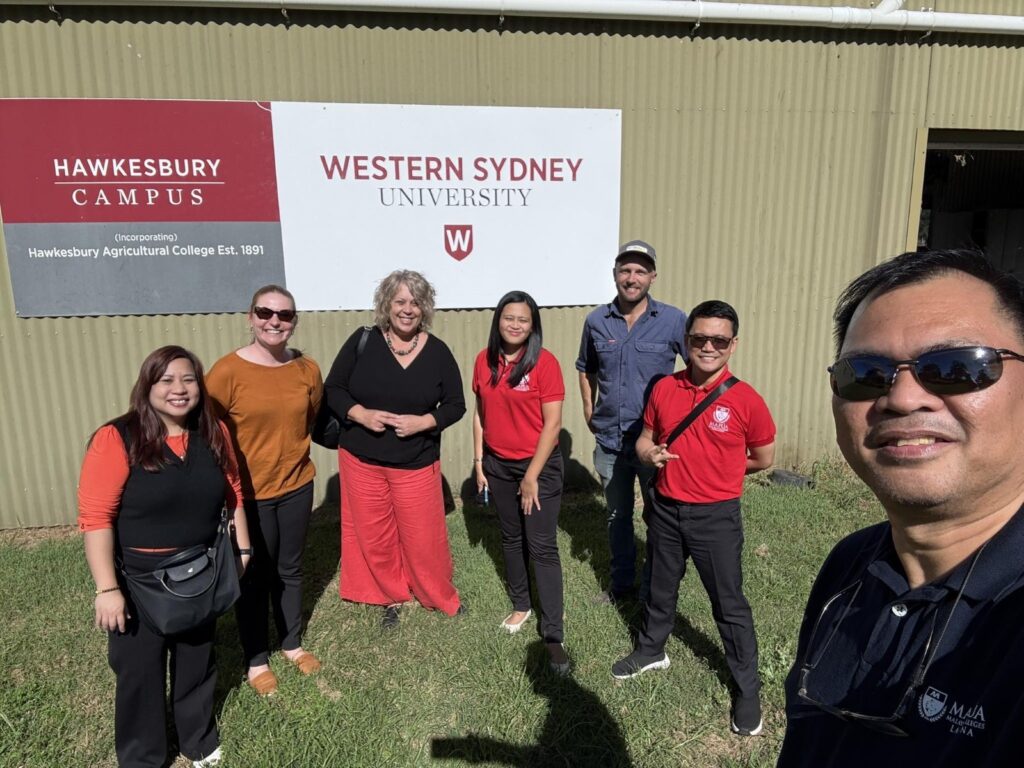
In the afternoon, the group embarked on an immersive campus tour led by Ms. Rachel Mullinger and Mr. Jaimie Alchin. Key highlights included the operational Cattle Farm managed by the College of Agriculture, which serves as a living laboratory for sustainable farming practices; the Biodiversity Stewardship Site, showcasing long-term ecological conservation efforts; and the Hawkesbury-Nepean River, where Dr. Michelle Ryan is conducting significant research on freshwater ecosystems.
While the team didn’t encounter a platypus in the wild, they were introduced to WSU’s ongoing ecological studies focused on this elusive and iconic Australian species. These research efforts aim to monitor and protect platypus populations, contributing to broader biodiversity and conservation goals.
Altogether, the day provided valuable, first-hand insights into how WSU’s academic and natural environments are actively leveraged to support the United Nations Sustainable Development Goals (UN SDGs), translating sustainability theory into real-world impact.
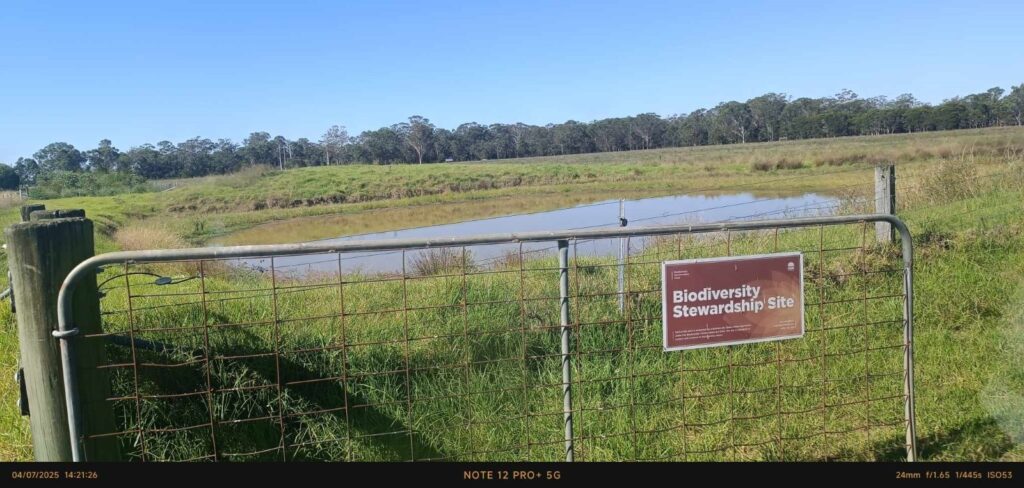
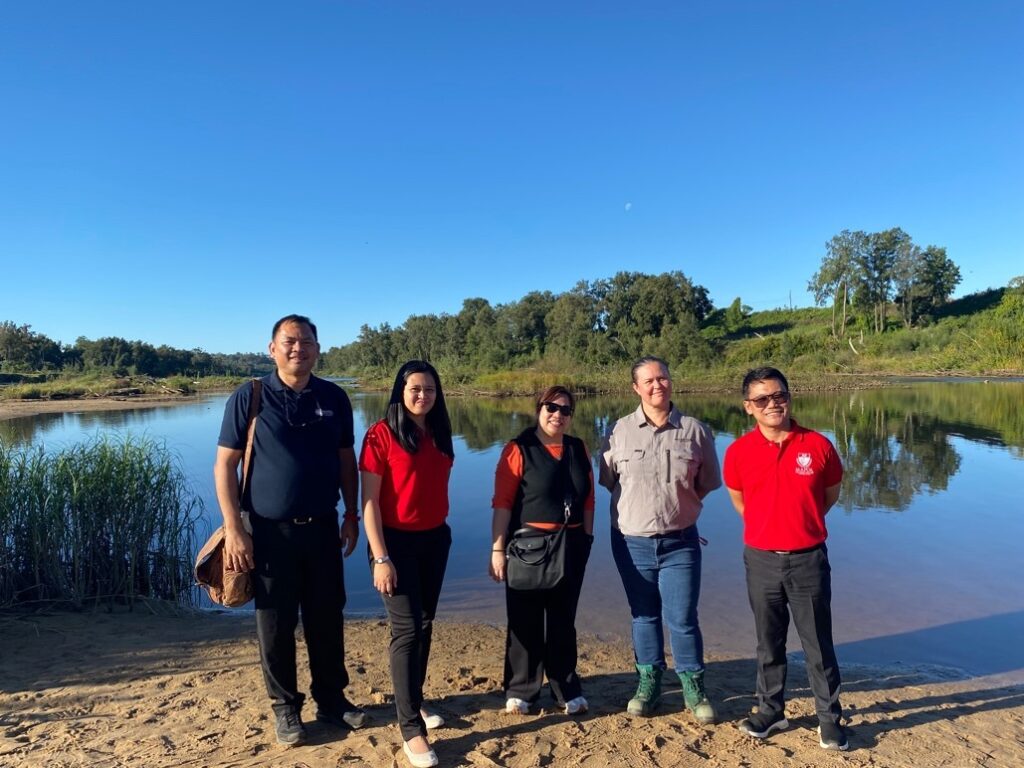
Day 2: Sustainability Across Disciplines and the Presentation of the Signed MOU
The second day of the benchmarking visit was highlighted by a series of in-depth knowledge-sharing sessions with leaders from WSU’s academic and research communities. Speakers included Prof. John Hunt, Dr. Sunil Panchal, Assoc. Prof. Ana Hol, Mr. Philip Sen, and Ms. Sindhu Sheoran, who each shared how sustainability principles are thoughtfully and intentionally embedded into their respective disciplines—from biomedical and food sciences to computing, environmental research, and disaster risk management.
These exchanges not only underscored WSU’s interdisciplinary approach to sustainability but also opened opportunities for deeper academic cooperation. The speakers graciously expressed their willingness to be connected with their respective counterparts at Mapúa schools for possible future collaborations in research, faculty exchange, or joint initiatives. This openness to partnership reflects WSU’s commitment to global engagement and reinforces the potential of the benchmarking visit to spark meaningful, long-term academic linkages.

The team also had the opportunity to explore the state-of-the-art Smart Glasshouse, a cutting-edge research facility dedicated to studying plant growth under precisely controlled environmental conditions. In addition, they were guided by Mr. Craig McNamara, Senior Engineering Technician at the EucFACE facility of the Hawkesbury Institute for the Environment during their visit to the Eucalyptus Free Air CO₂ Enrichment (EucFACE) site. This pioneering experimental forest is designed to examine the effects of elevated atmospheric CO₂ on native ecosystems. Mr. McNamara provided an in-depth explanation of the site’s design and scientific objectives. As a bonus, the team also enjoyed the unique experience of spotting kangaroos freely roaming the area.




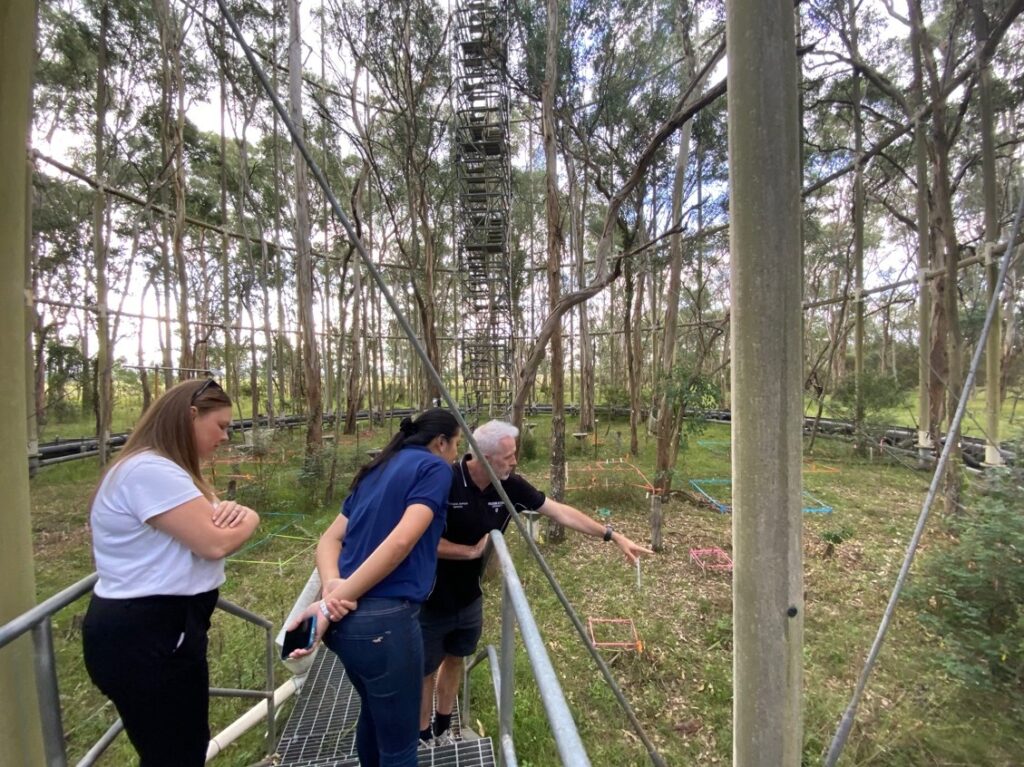
A key highlight of Day 2 was the formal presentation of the signed Memorandum of Understanding (MOU) between Western Sydney University (WSU) and the Mapúa Schools. The MOU was officially presented to the Mapúa team by the WSU hosts, with Professor Brian Stout, Pro Vice-Chancellor for Learning and Teaching, joining virtually to extend his warm remarks and support.
This symbolic moment signified more than just formal partnership—it laid the groundwork for concrete and meaningful academic collaboration. Both institutions expressed interest in working together to explore the feasibility of a wide range of collaborative activities, including joint research projects, shared academic programs and curricula, faculty and student mobility opportunities, and co-hosted events such as conferences, seminars, symposia, and guest lectures. All initiatives will be undertaken with mutual consent and outlined in writing, ensuring alignment with each institution’s strategic goals and capacities. This forward-looking partnership paves the way for innovation, knowledge exchange, and a stronger global academic community.

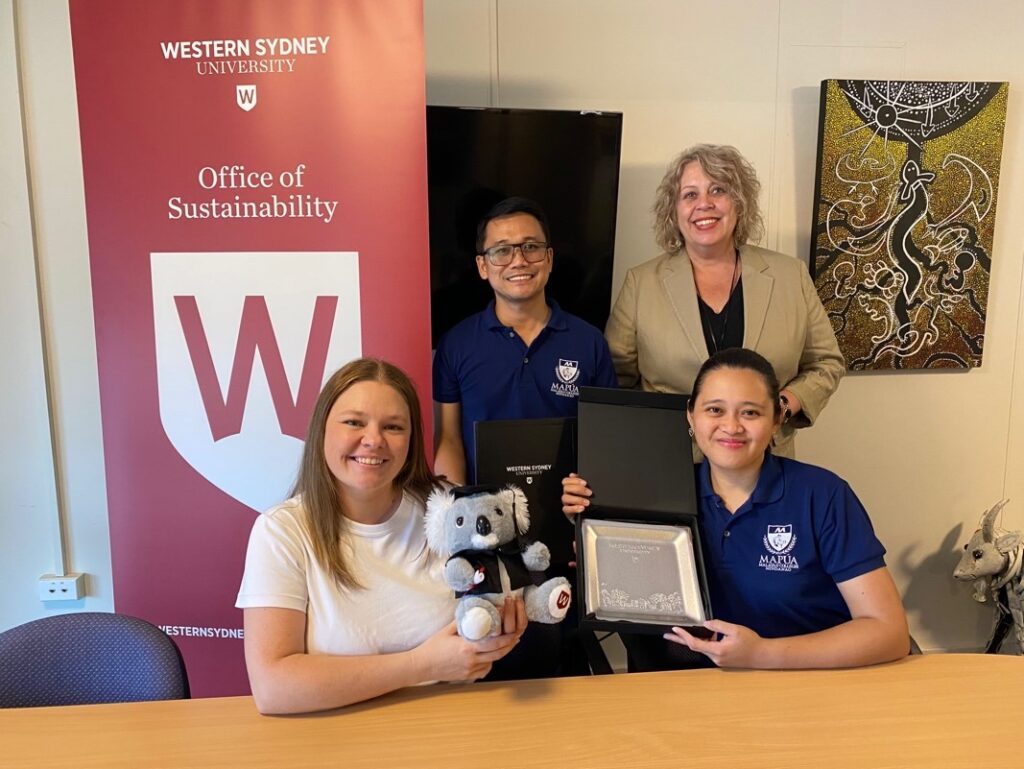
Days 3 & 4: Continuing Engagement at Parramatta Campus
The final two days of the benchmarking visit brought the Mapúa team to the WSU Parramatta campus, located approximately 40 kilometers from the Hawkesbury campus. At Parramatta, the team explored a wider range of state-of-the-art facilities and ongoing projects that contribute to WSU’s success in sustainability and innovation. The visit included a focused benchmarking of student learning spaces, highlighting modern, flexible, and inclusive environments designed to support collaboration, active learning, and digital integration. The team also examined how WSU embeds sustainability principles not only in operations and research but also in the design and functionality of academic and communal spaces, reinforcing the university’s strong commitment to holistic student development and environmental responsibility. The Parramatta campus stands as a testament to how infrastructure and sustainability can intersect to create a future-ready learning ecosystem.
This benchmarking visit represents a significant step in Mapúa MCM’s journey to advance sustainability through global partnerships, strategic planning, and innovative practices. The knowledge gained and the MOU presented during this engagement will serve as a catalyst for deeper collaboration and more impactful sustainability programs across the Mapúa network.
